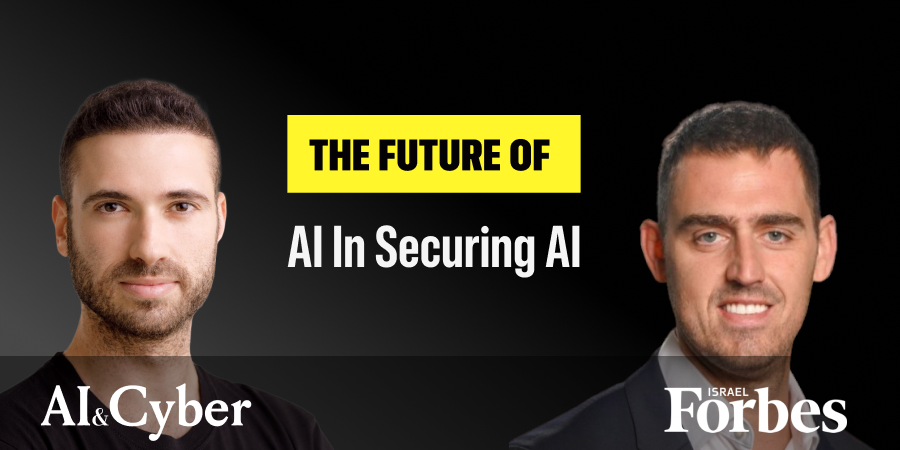Cybersecurity is at an inflection point, driven by a profound shift powered by artificial intelligence (AI). My recent conversation with Matan Derman, CEO of Apex, reinforced my conviction that AI’s integration into organizations is inevitable—and that new, AI-specific threats require a fundamentally rethought security strategy.
Derman, whose distinguished background includes prestigious service in Israeli cybersecurity units and Stanford Business School, brings deep insights into why organizations must urgently rethink security in the AI era. Together with his co-founder, Tomer Even, a partner with an equally impressive track record, they recognized early the fundamental shifts AI was bringing about. “It was clear that the world was changing—AI tools had existed for years, but only recently did they become universally accessible,” Derman explained.
The accessibility and ubiquity of tools like ChatGPT and GitHub Copilot have revolutionized productivity but simultaneously opened the floodgates to new vulnerabilities. When Derman discovered organizations actively banning these tools due to security concerns, it became a clear “aha” moment: “Organizations were banning AI tools out of fear—legal, compliance, privacy, and data leakage concerns were overwhelming.”
This realization resonates deeply with my own experience at Clarity, where I’ve witnessed firsthand the escalating sophistication and frequency of AI-generated cyberattacks. According to a Team8 report, AI-driven phishing attacks alone have increased by more than 2,000% in recent years. Organizations’ traditional security methods—centered around static perimeters and reactive measures—are ill-equipped to manage these dynamic threats.
One of Derman’s key insights was the recognition of AI as a double-edged sword—introducing immense potential alongside significant threats. Apex’s approach, therefore, revolves around building AI-powered solutions designed explicitly to secure AI-driven workflows. As Derman emphasized, “We evolved from being a security company focused on AI, to becoming a security company for AI that itself leverages AI extensively.”
During our discussion, Derman highlighted that traditional cybersecurity methods fail to address AI-specific threats adequately, such as “prompt injection” and “jailbreak” attacks. These attacks trick AI models into bypassing their safety measures, revealing sensitive or protected information. “We’ve demonstrated jailbreak techniques even using Morse code,” Derman noted, underscoring the limitless variations attackers now utilize. These tactics demand entirely new approaches to threat detection, making AI-driven defenses essential rather than optional.
From my perspective, organizations face a crucial choice today: embrace AI-driven proactive security or risk falling dangerously behind. The barrier to entry for attackers has plummeted thanks to AI, making sophisticated attacks accessible even to less experienced hackers. Thus, security strategies must pivot toward active, real-time intervention, leveraging AI itself as the backbone of defensive measures.
Derman and I agree that broad adoption—not just by tech-savvy early adopters but the entire workforce—is essential for truly realizing AI’s potential. He emphasized, “The real impact of AI will be felt when the average employee adopts these tools in daily operations, significantly enhancing organizational productivity. But that’s also when security risks become widespread and most critical.”
Reflecting on our exchange, it’s clear that companies must urgently adopt AI-driven security platforms designed specifically to address AI-driven threats. Organizations that adapt swiftly to this new reality will position themselves to reap AI’s productivity benefits securely. Those that hesitate risk not just stagnation but exposure to threats that multiply daily.
The cybersecurity industry stands at a crossroads. Proactive, AI-integrated security solutions are no longer a futuristic aspiration—they are today’s essential standard. Derman captured it best: “Our goal was identifying critical problems unique to AI use… creating foundational security layers for future AI adoption.”
Organizations must recognize this urgency and adapt accordingly, embracing AI-driven cybersecurity strategies now, not later. The future waits for no one.
About Michael Matias
Michael Matias is the CEO and Co-Founder of Clarity, an AI-powered cybersecurity startup backed by venture capital firms including Bessemer Venture Partners and Walden Catalyst. Clarity develops advanced AI technologies protecting organizations from sophisticated phishing attacks and AI-generated social engineering threats, including deepfakes. Before founding Clarity, Matias studied Computer Science with a specialization in AI at Stanford University and led cybersecurity teams in Unit 8200 of the Israel Defense Forces. Forbes Israel recognized him early on, naming him to the exclusive 18Under18 list in 2013 and the Forbes 30Under30 list thereafter. Matias authored the book Age is Only an Int and hosts the podcast 20MinuteLeaders.





